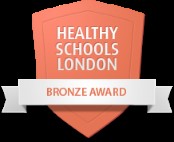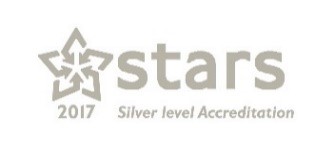Our Curriculum
Please read below our school curriculum statement. Subject-specific curriculum statements are available at the bottom of this page. Information about how we make the curriculum accessible for those with disabilities or special educational needs is included in the 'All Saints' SEND Offer' report in the 'SEND & Inclusion' section of the Learning tab; this is in compliance with the Equality Act 2010 and the Special Educational Needs & Disability Regulations 2014.
Intent
At All Saints’ CE Primary School, we strive to offer a broad, balanced and enriching curriculum that enables children to become confident, life-long learners. Our aim is to teach a diverse range of high-quality lessons, inspiring children to think innovatively, develop their individual creativity and, above all, ignite a passion for learning, whilst fulfilling the requirements of the National Curriculum. We provide a curriculum that aims to cultivate curiosity, concentration, resilience, imagination, determination, cooperation and collaboration – therein promoting a lifelong love and enjoyment of learning. Our Christian ethos underpins our entire educational environment and helps to instil in children our school values of compassion, hope, perseverance, respect, trust and wisdom. We value their voices, encouraging them to contribute to the ongoing development of the curriculum.
Our children are offered a wide range of broad and balanced learning experiences that meet the needs of all learners, helping them to develop into resourceful, resilient problem-solvers who are independent and inquisitive, as well as being accepting of themselves and others in the wider world; the All Saints’ curriculum celebrates diversity, and topics are carefully chosen to represent a wide variety of beliefs, cultures and people. It utilises the cultural wealth of our community, whilst supporting the children’s spiritual, moral and social development. We serve a diverse and multicultural community with a vast range of nationalities and religions. Our pupils come from a broad spectrum of starting points with high levels of EAL and deprivation. We strive for the best possible outcomes for all whilst also prioritising pupil well-being. We provide them with the knowledge and skills to be successful in the path they choose, as well as supporting their physical health and development, emotional well-being and mental health. It is our intention that they leave our school as well-rounded, kind, compassionate individuals who care about both their school community and the world beyond, and are equipped to live out the core British values: the rule of law, democracy, individual liberty and mutual respect and tolerance of others.
We have high expectations of all children and the adults who work with them; we help the children to adopt and develop a growth mindset, enabling them to become resilient learners who strive to learn and improve in all aspects of their social, emotional and academic achievements. Growth mindset runs explicitly through our whole curriculum and all members of our school community are encouraged to embrace challenge and persist when faced with possible setbacks.
Implementation
At All Saints’, we engage in a Learning Power approach, as promoted by the respected teachings of Carol Dwek, Shirley Clark and Guy Claxton, encouraging pupils to strengthen their learning muscles and continually develop their independence, initiative, determination and love of learning. We also advocate Learning without Limits, as formulated by Dame Alison Peacock, not categorising children in to fixed ability groups but recognising that they are constantly evolving and changing at different rates across the curriculum.
Each curriculum subject has a dedicated subject leader with clear roles and responsibilities. To ensure high standards of teaching and learning in all subjects and a broad and balanced curriculum overall, we implement a curriculum that is progressive throughout the whole school. The role of the subject leader is pivotal in its successful implementation; each leader prepares a detailed medium term curriculum map documenting the topics, knowledge and skills, key vocabulary and sticky knowledge across each unit of learning and in each year group to ensure there is a diverse range of topics being taught that are in line with the National Curriculum. The subject leader then works closely with the other class teachers during the planning process, sourcing the optimum resources attainable within budget to enable them to implement their teaching units, and researching enrichment opportunities, such as guest speakers and workshops, that will bring the subject to life. All of our staff are role models for the children and model the learning requirements clearly for all lessons in all subjects. We also believe in a collaborative partnership with parents, which is evidenced by the sharing of learning both in school and at home through the online platforms of Tapestry and Google Classroom.
The planned topics reflect different cultures, people and beliefs in order for the children to understand difference and celebrate diversity. For example, we have been visited by a Christian flag dancer, musicians and also have links with a local Jewish synagogue. We have sought to ensure that local, national and international knowledge is gained by relating topics to our local areas of Barnet and London, our country as a whole and the wider world. Pupil voice also greatly influences our curriculum as children’s opinions about their learning are actively sought in our ‘Big Voice’ sessions and regular pupil surveys.
All lessons are effectively planned to ensure progression and to meet the needs of every individual in the whole class, taking into consideration special educational needs, pupil premium and more-able learners. Each lesson is challenging with clear objectives and steps to success, using skills and knowledge-based learning. The curriculum maps establish a clear progression of skills throughout every subject; when delivering individual and sequences of lessons, teachers ensure that the different skills are explicitly taught and used by their pupils, beginning in EYFS, and developing year-on-year to Year 6, where the skills gained prepare children for further study in each subject at secondary school. Our growth mindset approach at All Saints’ enables pupils to become independent, resilient learners who choose their own level of learning from differentiated Mild, Spicy and Hot tasks – with teacher guidance always on-hand to ensure that every child is appropriately challenged.
The sticky knowledge identified for each topic in the curriculum maps is knowledge that we deem invaluable for the children’s education and cultural capital; it ensures that a spiral curriculum is embedded throughout the school which promotes outstanding outcomes. They acquire this knowledge by engaging in active learning and creative learning styles designed by our teachers which ensure that lessons are memorable and interactive.
At All Saints’, we enhance pupils’ learning by providing enriching experiences that are memorable for them. For example, we believe that educational visits and experiences are paramount to receiving a broad and balanced curriculum. The children are provided with at least three educational visits a year, covering a wide range of topics to further embed their knowledge and skills for the topic being covered. We utilise the local London area for these trips and ensure that they are memorable experiences. We also provide exciting days or weeks within different subjects to enthuse children and to further develop their understanding. This has included Black History Month, where pupils focus on many aspects of black history through cross curricular lessons. We also have an international week where each class focuses on a particular country; children learn the history and geography of their chosen country, create art, create international food dishes from that particular culture and learn about their musical traditions. This special annual event is also linked to our Games Day in PE where pupils take part in an Olympics-style day where they represent a different country. Such occasions bring parents, children, staff and other members of the community together to celebrate as a whole school family; the experiences enthuse and excite the children whilst providing them with a wealth of knowledge and skills.
We value the importance of learning about the wider world and laying the foundations for future career planning; as such, we have held a number of inspirational assemblies to further excite the children about a range of different topics and subjects, and to encourage them to be aspirational in their personal goals for the future. A number of guest speakers from a range of different cultures, religions and sectors have delivered special assemblies about different issues and topics. These have included Levi Roots, who spoke about diversity and creating a business despite facing adversity and Paul Sturgess, the tallest man in Britain who played basketball in the USA and spoke about being different and persevering to achieve our dreams. All such experiences have been memorable and have inspired pupils to reflect on how they too can achieve their dreams, as well as providing them with an opportunity to meet a wide range of people from our local community.
At All Saints’, we strongly believe in the wellbeing and overall health of our children. We focus on the importance of family and community and have a nurturing environment where children are encouraged to share their worries and embrace mistakes as a way to learn and improve. Emphasis is also placed on the benefits of physical activity and the impact it has on the children’s wellbeing and ability to learn; we consequently ensure that there are carefully planned opportunities for them to be active throughout the day and participate in a range of activities and sports in PE lessons, throughout lunchtime and in our extended care provision. We believe this helps them to be in the right mind-set to learn and to thrive.
Pupil voice and responsibility is seen as an important way to encourage children to take ownership of their own learning and become active members of the school community. Throughout our school, there are many councils and opportunities where they can take on responsible roles that promote leadership skills where they can voice their opinions, share their ideas on important issues and represent the school at important events. An example of this is our ‘Eco Warriors’, comprising a group of Year 3 and Year 4 students striving to improve the school’s carbon footprint. We also have sports leaders who encourage physical activity across our school and run activities for younger members of our school community. These varied and important responsibilities are confidence-building and enable the children to voice their opinions and develop their passions.
Impact
Children of all abilities and backgrounds are engaged and challenged in all subjects; they become determined, independent learners who progressively improve their skills and knowledge to be the best that they can be.
All subject leaders have the knowledge, expertise and practical skill to be able to lead their areas effectively. They are responsible for the curriculum design, delivery and impact in their own curriculum area. Subject leaders and leaders at all levels, including Governors, regularly review and quality assure the subject areas to ensure that they are being implemented well and coverage, breadth and balance is appropriate.
Formative assessment of the children’s understanding of their learning and the linked vocabulary takes place promptly after each lesson and at the end of each unit of learning, ensuring that any concerns are quickly identified and can be addressed with additional learning support if required. Teachers have high expectations and all children use technical vocabulary accurately and know, apply and understand the skills and processes specified. They are given constructive feedback and next steps; teachers appreciate the importance of high quality editing to move learning on and pupils demonstrate high levels of engagement in the marking process, responding to feedback in a positive manner. They become more confident in analysing and giving their opinion on their own and others lesson outputs, and increase their resilience and perseverance by evaluating and improving their learning. Children are encouraged to speak confidently about their learning and their skills.
At the end of each topic in most subjects, an assessment workbook is completed using teacher assessment to determine attainment and progress made against planned National Curriculum requirements as well as against the progression of skills and knowledge documented in the curriculum map. In addition, children’s books are scrutinised in moderation staff meetings, which provide an opportunity for an open and supportive dialogue between teachers and the SLT. Further ways of assessing the impact of our curriculum include learning walks by the Subject Leaders and/or the SLT, annual reporting to parents of standards across the curriculum and pupil discussions about their learning, for example, during lessons and in Big Voice sessions (our pupil voice forums). For younger pupils, particularly in EYFS, images and videos of their learning journey are regularly reviewed and shared with parents and carers. By assessing the impact of the curriculum in many ways, the subject leader and teachers are able to adapt and teach effectively, ensuring that children enjoy their learning and progress their knowledge and skills as far as they possibly can.
At All Saints’, our exciting and rich curriculum enables all our children to develop and embrace their knowledge, talents and skills and make excellent progress, providing them with a wealth of experiences which prepare them fully for secondary education and adulthood. Our Christian values and learning muscles are at the centre of the teaching and curriculum at All Saints’ and are lived out through our inspiring, inclusive and invitational collective worships and all other areas of school life, ensuring pupil’s spiritual, moral, social and cultural development. This has a significant impact on learners and their wellbeing, thus developing well-rounded pupils who will continue to use these values in their future education and lives. They show respect, tolerance and understanding of all religions and beliefs and have a strong understanding of how the beliefs, values, practices and ways of life within any religion come together. Ultimately, our vibrant curriculum prepares our children for a lifelong journey of learning and develops key traits to help them be active and productive citizens who reach their full potential in a challenging and ever-changing world.







